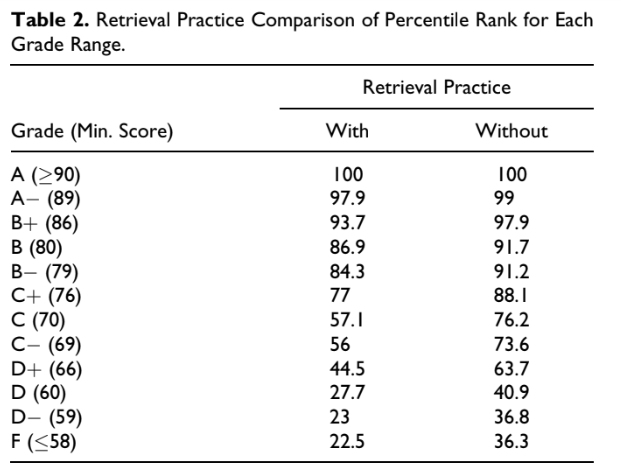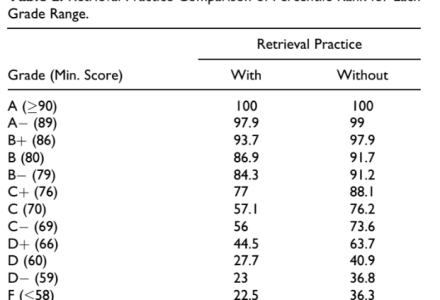Snapshot of Schwieren et al., (2017)
The focus of testing is shifted from the assessment of learning outcomes to supporting the learning process – assessment for learning rather than assessment of learning.
This paper focused on applied classroom practice. 19 publications, 72 effect sizes and significant overall effect size of d=0.56 that demonstrated that testing was beneficial to the learning outcomes.
Testing between the acquisition phase and a final test enhanced performance in the final test. Feedback on the result of the intermediate test increased this effect.
The paper advises, that learners should know beforehand whether a test is used to evaluate performance or to practice retrieval. Feedback can further enhance the beneficial effects of the practice tests and can “guide the learners’ following learning activities and strengthen the learning progress.”
Snapshot of Shobe (2022)
Mid week @ReganARGurung shared Shobe (2022).
Shobe (2022) aimed to determine elements and procedures from the testing effect literature for practical application, devise a method for feasibly and sustainably implementing testing effect methods in practice, and determine if a simple way to incorporate retrieval practice into an existing introduction to psychology course was sufficient to observe testing effects. It is a paper that I will come back to.
Quiz scores of Introductory Psychology sections with and without retrieval practice (multiple choice retrieval practice blocks presented at 15 to 25 minute intervals as part of the lecture) were compared. Sections with retrieval practice also compared the effects of repeated and new questions on quiz performance. Unsurprisingly students with retrieval practice performed significantly better on quizzes than those without. Repeated and new retrieval practice were equally superior.
What do we learn?
Retrieval practices can successfully be implemented, feasibly and sustainably, in an authentic classroom environment. Retrieval practice questions can be related to delayed practice questions, rather than exact repeats, to achieve a testing effect.
Distributing low stakes multiple-choice questions throughout lectures is effective for increasing test performance. The current method was neither burdensome to workload, content, or resources. Shobe (2022) moves past the literature – suggesting we show now focus on “informing instructors what to do and how to do it.”



